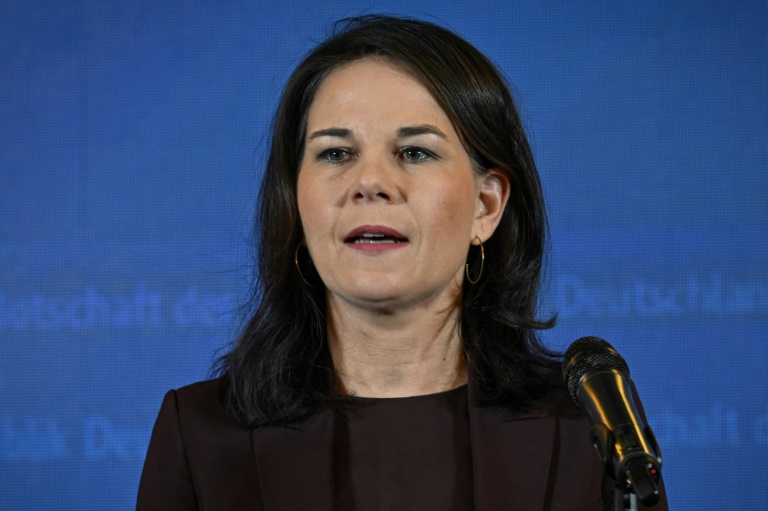The wife of Julian Assange said Thursday the WikiLeaks founder would die if extradited to the United States, ahead of his latest appeal against the UK ruling.
Assange, 52, is wanted on espionage charges in the US and has been detained in the high-security Belmarsh Prison in southeast London since April 2019.
Stella Assange told a news conference that her husband could be on a plane to the US “within days” if he loses the appeal, with a two-day High Court hearing set to begin next Tuesday.
The situation “extremely grave”, as his mental and physical health were “in decline”, she said. “If he is extradited, he will die,” she added.
Julian Assange was arrested after spending seven years holed up in Ecuador’s London embassy to avoid extradition to Sweden, where he faced accusations of sexual assault that were eventually dropped.
The US authorities want to put the Australian publisher on trial for divulging US military secrets about the wars in Iraq and Afghanistan.
Two judges at London’s High Court will hear Assange’s request to be allowed to appeal the most recent ruling approving his extradition. A single judge last June refused permission to appeal.
But if his appeal is successful, Assange will have further opportunities to argue his case before the UK’s domestic courts, with a date set for a full appeal hearing.
If he loses, he will have exhausted all UK appeals and will enter the process of extradition, although his team have said they will appeal to European courts.
The UK is part of the European Court of Human Rights and it is within the court’s power to order a stay on the extradition. These are only given in “exceptional circumstances” however.
It would also require the UK government to accept the order, which is uncertain given its ongoing dispute with the European court after it blocked its plan to send asylum seekers to Rwanda.
Assange is accused of publishing some 700,000 confidential documents related to US military and diplomatic activities, starting in 2010.
The US is attempting to convict Assange under the 1917 Espionage Act, which his supporters warn mean he could be sentenced to 175 years in prison.
The UK courts approved the extradition request after the US vowed to not imprison him in its most extreme prison, “ADX Florence”, nor to subject him to the harsh regime known as “Special Administrative Measures”.
But Kristinn Hrafnsson, WikiLeaks’ editor-in-chief, said Thursday that caveats included within the promises meant they were “not worth the paper they are written on”.
The effect of the case on the future of press freedom “cannot be underestimated”, he added.
“No journalists anywhere, including you in the room today, are safe,” he said, speaking of an “anti-press pandemic” spreading across the world.
Assange’s wife Stella said that she had “learned not to be optimistic” ahead of court rulings, and feared the potential outcome.
“Julian will be put in a hole, so far and so deep in the ground that I don’t think I’ll ever see him again,” if extradited, she said.
It is not known yet whether a decision will be delivered immediately after next week’s hearing, or if it will be reserved — nor if Assange will be allowed to attend in person.
AFP







